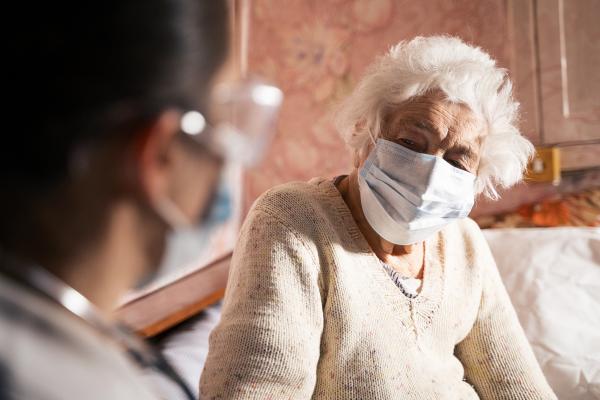
Getty Images
July 31, 2020 — Older Americans may be receiving cancer screenings not recommended by the U.S. Preventive Services Task Force, according to Penn State College of Medicine researchers.
The task force recommends routine screening for colorectal, cervical and breast cancers. These recommendations end for people at upper ages or who develop a condition that decreases their life expectancy. A routine screening above the recommended age is called overscreening.
"There are two reasons why people should stop screening for cancer," Jennifer Moss, assistant professor of family and community medicine and public health sciences, said. "First, when they 'age-out' of the recommended screening age, or second, when their life expectancy is too low. As with any clinical procedure, there are risks from the cancer screening tests. These risks are even higher for people who have aged-out or who have a low life expectancy."
To determine the extent of overscreening nationally, the researchers analyzed data from the Center for Disease Control and Prevention's 2018 Behavioral Risk Factor Surveillance System. This survey collects data about a variety of health behaviors, including cancer screening. In total, researchers reviewed data for 20,937 men and 34,244 women for colorectal cancer, 82,811 women for cervical cancer and 38,356 women for breast cancer. Researchers identified overscreened patients as those over age 75 for colorectal cancer screening, and women over 65 for cervical and over 75 for breast cancer screenings. The researchers also determined patient location and whether the patient lived in or near a city.
"We can never exactly know a person's life expectancy, but my co-authors and I used a scientifically-accepted index to calculate estimated risk of death over the next 10 years," Moss said. "We hypothesized that people who are older or who have lower life expectancies would be less likely to report having received their cancer screenings recently, but we didn't see strong evidence of this. This pattern shows us that too many people are getting screened after a point when the screening is probably not going to provide benefit and may cause harm."
Researchers found overscreening of 59.3% of men and 56.2% of women for colorectal cancer; 45.8% of women for breast cancer and 73% of women for breast cancer. Research results appear in the journal JAMA Network Open.
"This pattern emphasizes the need for additional research to identify risks and benefits of screening in older adults and determine who may benefit from screening after the recommended upper-age limits," the researchers reported.
Overscreening was higher for women who live in or near cities. Researchers offer several reasons this may be. First, women who live in more rural areas may have longer and more trusting relationships with their healthcare providers, allowing for conversations about stopping cancer screenings. Second, rural women may have less access to screening facilities, reducing the number overscreened. Third, women who live in or near cities may receive automated screening reminders from more technologically-advanced healthcare facilities. Lastly, beliefs about cancer differ between rural and city populations. Those who live in or near a city may be more open to screening. Why men do not have the same overscreening difference is not known.
Preventing screenings that are not recommended is challenging, said the researchers. One reason is that life expectancy estimates are not always accurate. Another reason is that doctors and patients may not be comfortable discussing life expectancy and using it to make medical decisions. A third reason is that the healthcare system often encourages screening. A fourth reason is that awareness campaigns often do not highlight that screenings are not recommended for all ages.
"Guidelines for cancer screening must balance risks with benefits," the researchers reported. "Individuals with limited life expectancy can anticipate fewer benefits of cancer screening, particularly for colonoscopy."
This research helps inform the general healthcare system. Patients should discuss their individual health decisions, including cancer screening, with their healthcare providers.
For more information: www.news.psu.edu


 February 16, 2026
February 16, 2026 









